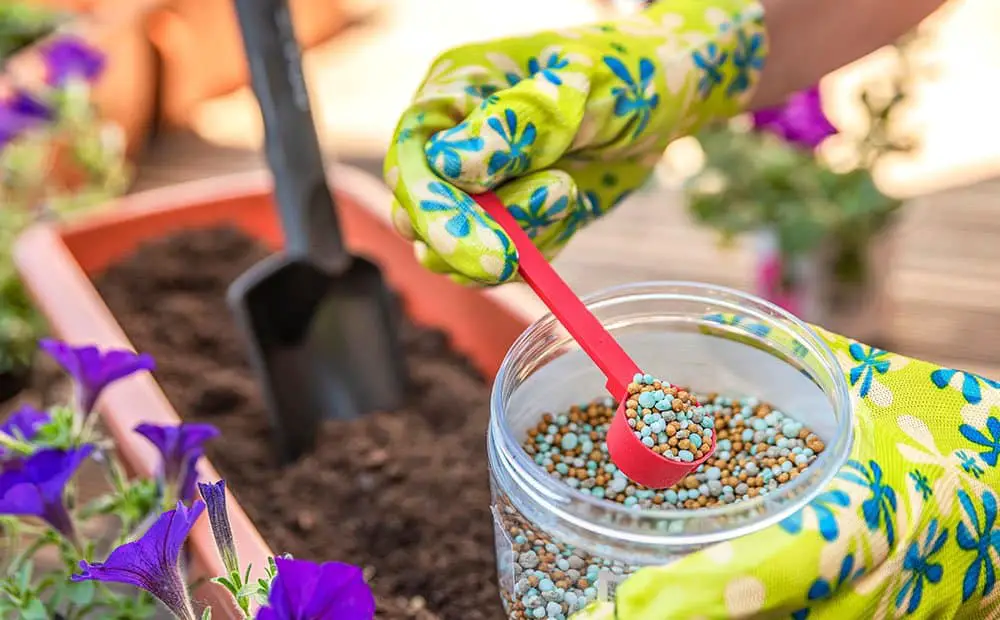Because gardening and permaculture are constantly changing, the switch to organic methods has become very important for professionals and amateurs alike. The use of organic powder fertilizer is a very important part of this change. This detailed guide discusses the benefits, types and best ways to use these eco-friendly fertilizers.
How to Understand Granular Organic Fertilizer:
Organic granular fertilizers come from natural sources and benefit the health and longevity of your land. Unlike synthetic fertilizers, these fertilizers add important nutrients to the soil without using chemicals that are harmful to the soil. Composted plant and animal material make up the largest portion. It works in a slow-release manner and nourishes the plants in the long term.
Why is Organic Granular Fertilizer Good for You?
1. Protect the Environment
Chemical fertilizers can cause damage to the soil, but organic granular fertilizers are not as harmful. This makes agriculture more sustainable. They improve soil structure, prevent it from washing away and promote biodiversity, making the environment healthier.
2. Soil Health
These fertilizers make the soil more fertile by encouraging microorganisms to function and absorb nutrients. Plants grow stronger and are less likely to contract disease, meaning your garden or farm will remain productive for a long time.
3. A Nutritious Harvest
Organic powder fertilizers contain the right amounts of nutrients that plants need, such as nitrogen, phosphorus and potassium. This ensures that your plants get the nutrition they need to grow properly, meaning you get more nutrient-dense food.
Different Types of Organic Granular Fertilizer:
1. Fertilizer made from Compost
Compost fertilizers are made from broken-down organic waste, making them a great source of nutrients. They make the soil stronger, can retain moisture better and make micro-organisms more active.
2. Fertilizer made from Feces
Manure is rich in nutrients and ensures that the land remains fertile. They are made from animal waste. The right compost can kill harmful pathogens, making them a safe and practical option for organic farms.
3. Plant Fertilizer
Green manures or cover crops are used as vegetable organic fertilizer to improve the land. They add organic matter, making the soil stronger and more nutritious.
How to Best Use Organic Granular Fertilizers:
Read and Follow the Instructions: Each fertilizer may have its own instructions. For the best results, it is important to read and follow these steps.
When to Use: To meet the specific needs of your plants, you can use organic powder fertilizer at the appropriate time during the growing season.
Balanced Application: Do not use too much fertilizer, as too many nutrients can be harmful to plants and the environment. For best results, use the recommended coating speeds.
How to Choose the Best Organic Granular Fertilizer:
If you want to get the best results from your agriculture or horticulture, it is important to choose the right organic powder fertilizer. When choosing the right fertilizer for your needs, consider these important things:
1. Test the Soil
Before choosing a fertilizer, conduct a soil test to find out how many nutrients are in the soil. This analysis will help you choose a fertilizer that solves your specific problem in your soil, giving you an answer that is both effective and tailored.
2. Ratio of Food Ingredients
Different plants require different amounts of nutrients at different stages of growth. Pay close attention to how the nutrients are mixed in organic powder fertilizers. For example, leafy vegetables can grow better with a fertilizer that contains more nitrogen, while fruits and flowers can grow better with a fertilizer that contains more phosphorus.
3. Sustained Release Formula
Choose a fertilizer that releases nutrients slowly. They release nutrients slowly over time, providing your plants with a long-lasting, stable source. This helps stabilize plant growth and reduces the chance of nutrients entering groundwater.
4. Organic Certification
Make sure the appropriate organic certification group has approved the organic granular fertilizer you choose. This certification means that the product is safe and does not contain artificial chemicals or genetically modified organisms (GMOs).
5. Number of Microorganisms
A thriving microbial community is important for healthy soil. Microorganisms that break down organic matter and make nutrients more available to plants are important, so look for chemicals that support them.
What not to Do When using Organic Granular Fertilizers:
The benefits of organic granular fertilizers are numerous, but people often use them incorrectly. In order for the fertilization to work and last, you need to remember the following mistakes:
1. Too Many Applications
Having more is not always better. If you use too much organic granular fertilizer, you can cause nutritional problems that can be harmful to your plants and the environment. Follow the recommended dosages for better results.
2. Ignore Soil Conditions
Different soil types may respond differently to different types of powdered organic fertilizers. Consider your soil’s unique needs, such as pH and composition, to choose the right fertilizer.
3. Not Following Proper Watering Procedures
Proper watering is very important when using organic powder fertilizers. Make sure your plants get enough water to start the slow-release process so they can absorb nutrients more easily.
4. Do not Change Fertilizer
Switching between different types of organic powder fertilizers will provide your plants with a wide range of nutrients. This keeps the soil generally healthy and prevents nutrient imbalances.
Conclusion:
You can get the most out of your organic gardening if you use these tips to choose the right organic granular fertilizer and avoid common mistakes. Make smart choices to ensure your fertilization method is right for your needs and reap the benefits of a healthy, eco-friendly garden or farm. Organic granular fertilizers not only help plants grow but also help maintain a healthy and prosperous agricultural environment.
FAQs:
1. What is the difference between organic fertilizer and synthetic granular fertilizer?
Organic granular fertilizers come from natural sources such as compost, manure or plant matter and deliver nutrients in a slow-release manner. Synthetic fertilizers, on the other hand, are manufactured and generally provide nutrients more quickly, but they can have adverse effects on the environment.
2. Is organic granular fertilizer suitable for all types of plants?
Yes, organic granular fertilizers are generally suitable for a variety of plants, including vegetables, fruits, flowers, etc. However, it is crucial to choose a fertilizer with a nutrient ratio that meets the specific needs of your plants.
3. How often should organic granular fertilizer be applied?
Application frequency depends on factors such as the type of fertilizer, soil conditions and the specific needs of the plant. Generally, organic granular fertilizers are applied once or twice per growing season, but it is important to follow the manufacturer’s recommendations.
4. Can organic granular fertilizer be used for container gardening?
Yes, organic granular fertilizers can be used in container gardening. Choose a fertilizer with a balanced nutrient ratio and pay attention to container size to avoid overfertilization.
5. Do organic granular fertilizers help permaculture?
Absolute. Organic granular fertilizers promote permaculture practices by improving soil health, reducing environmental impact and supporting biodiversity. They contribute to the overall resilience and sustainability of agricultural ecosystems.


Patek Philippe — это pinnacle часового искусства , где соединяются точность и художественная отделка.
Основанная в 1839 году компания славится ручной сборкой каждого изделия, требующей многолетнего опыта.
Инновации, такие как автоматические калибры, сделали бренд как новатора в индустрии.
https://patek-philippe-shop.ru
Коллекции Grand Complications демонстрируют вечные календари и ручную гравировку , выделяя уникальность.
Современные модели сочетают традиционные методы , сохраняя классический дизайн .
Это не просто часы — символ вечной ценности , передающий наследие мастерства из поколения в поколение.
Доставка грузов из Китая в Россию осуществляется через автомобильные каналы, с таможенным оформлением на российской границе .
Импортные сборы составляют в диапазоне 15–20%, в зависимости от типа продукции — например, сельхозпродукты облагаются по максимальной ставке.
Для ускорения процесса используют серые каналы доставки , которые избегают бюрократических задержек, но связаны с дополнительными затратами.
Доставка грузов из Китая
При официальном оформлении требуется предоставить сертификаты соответствия и декларации , особенно для сложных грузов .
Время транспортировки варьируются от нескольких дней до месяца, в зависимости от удалённости пункта назначения и загруженности контрольных пунктов.
Стоимость услуг включает логистику , таможенные платежи и комиссии за оформление , что требует предварительного расчёта .
Хотите найти информацию о человеке ? Наш сервис поможет детальный отчет в режиме реального времени .
Воспользуйтесь продвинутые инструменты для поиска цифровых следов в открытых источниках.
Выясните место работы или интересы через систему мониторинга с верификацией результатов.
глаз бога телеграмм сайт
Система функционирует с соблюдением GDPR, обрабатывая открытые данные .
Закажите детализированную выжимку с геолокационными метками и списком связей.
Доверьтесь проверенному решению для исследований — результаты вас удивят !
Нужно собрать данные о человеке ? Этот бот поможет детальный отчет в режиме реального времени .
Используйте продвинутые инструменты для анализа цифровых следов в соцсетях .
Узнайте место работы или интересы через систему мониторинга с верификацией результатов.
пробить через глаз бога
Система функционирует в рамках закона , обрабатывая открытые данные .
Получите расширенный отчет с историей аккаунтов и графиками активности .
Доверьтесь проверенному решению для исследований — результаты вас удивят !